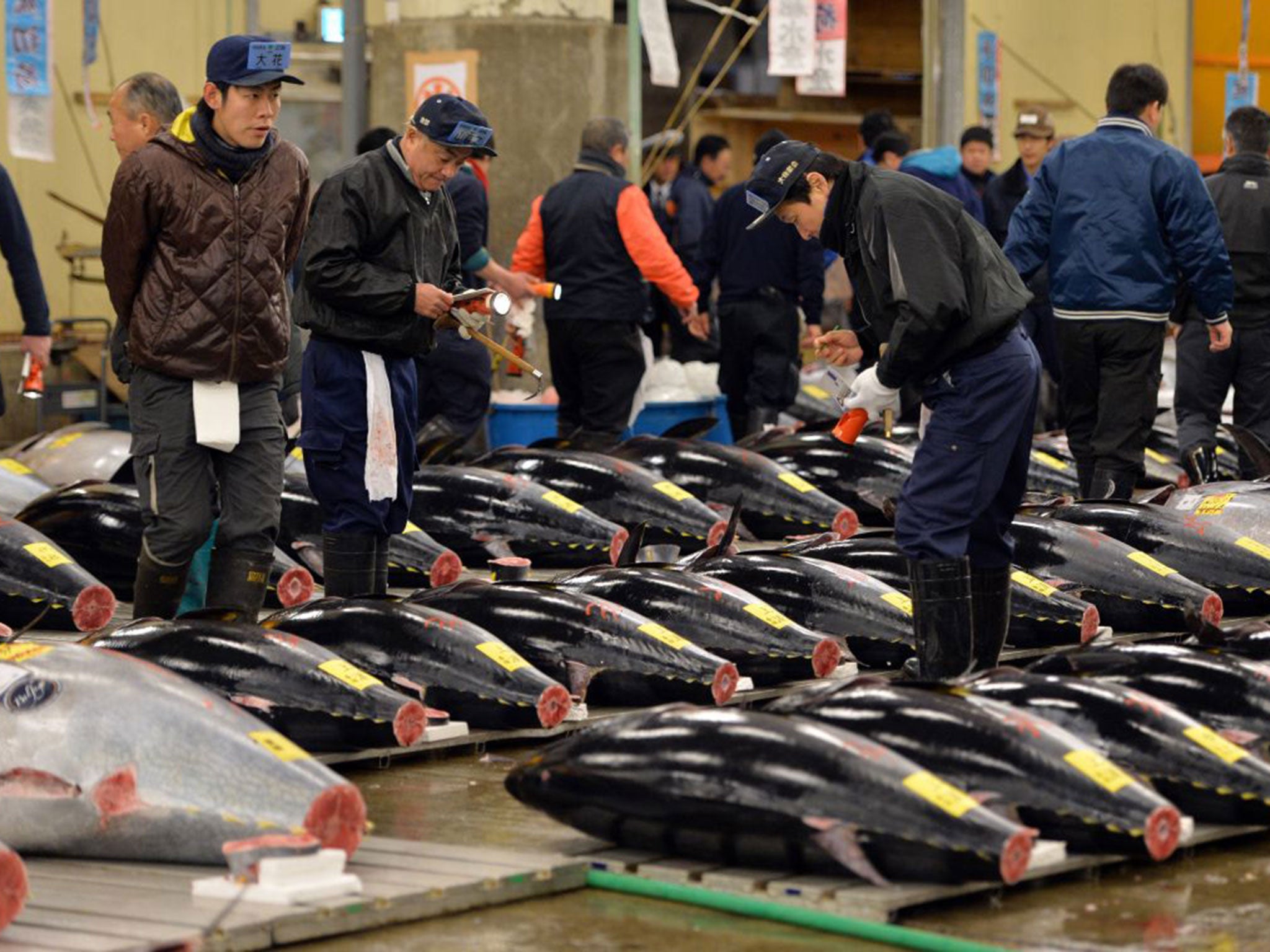Japanese restaurant pays £80,000 for a single tuna - and it's a bargain
Japan eats 80 percent of all bluefin tuna worldwide

An endangered bluefin tuna has sold for almost £80,000 to a sushi restaurant - in what was apparently a "low price" bid for the best fish.
The 200kg creature caught off the coast of Japan was the first to auction at Tokyo's Tsukiji fish and seafood market, the biggest and most well-known of its kind in the world.
Buyer Kiyoshi Kimura, who is president of the Sushi Zanmai restaurant chain, told the Japan Times he was "surprised to win at such a low price."
"But it's the best quality," he said. "I'm satisifed with buying the best one - it has a good shape and great fat."
The four million yen purchase was relatively low for the fish market, where in previous years a top specimen has sold for approximately 155 million yen, or £887,260.
A small piece of "otoro", the fatty underbelly of a bluefin tuna, can cost several thousand yen or about £13 in high-end restaurants.
Yet numbers of bluefin tuna have dropped catastrophically across oceans, with more than a 96 per cent decline in the northern Pacific Ocean alone, according to the Pew Environment Group.
And more than nine out of 10 of the species caught two years ago were too young to have produced.
The Japanese eat about 80 per cent of all bluefin tuna caught worldwide, with stocks of all three of the bluefin species - the Pacific, Southern and Atlantic - having fallen over the past 15 years amid overfishing.
Responding to a proposed ban on tuna fishing in 2010, Japan refused on the grounds that preserving the species would "threaten the country's culture."
The "lower" price of the recent auction was because of a lack of other bidders and seemingly more tuna off the north coast of Japan this year, according to the Japan Times.
Join our commenting forum
Join thought-provoking conversations, follow other Independent readers and see their replies
Comments
Bookmark popover
Removed from bookmarks